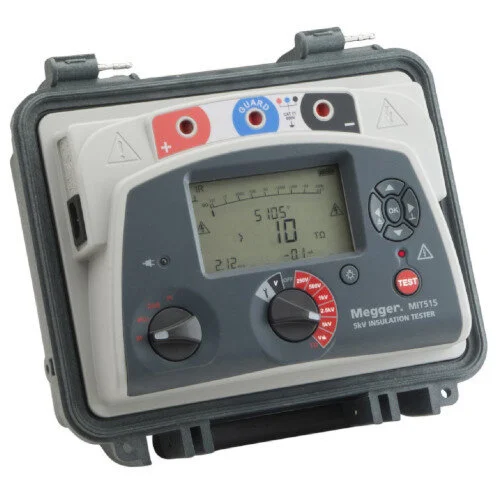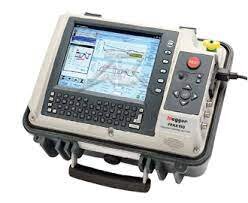We perform the following tests on Power and Distribution transformers:
Acceptance inspection, Testing, and commissioning
Power Electronics performs initial acceptance inspection, testing, and startup procedures during commissioning as per NETA Standards.
Inspection
Power/Pad-Mount transformers are inspected internally (If called for) and externally to reveal any missing parts or items that were damaged during transit. It further checks for any manufacturing defects, loose connections, and establishes baseline data for future preventative maintenance. Inspections performed by PE follow the manufacturer’s set guidelines and instructions.Installation and dress-out of transformer bushing and auxiliary equipment. Transformer Oil Processing can also be performed upon request.
Electrical Tests include Power Factor, Turns Ratio Test, Polarity Tests, Winding Resistance Test, Insulation Resistance with Polarization Index, Sweep Frequency Response Analysis (SFRA), CT Test, Hi-Pot
Transformer Oil Analysis as per ASTM Standards.
A detailed report is provided upon completion.
ELECTRICAL TESTING DURING MAINTENANCE/REPAIR
TRANSFORMER TURNS RATIO TEST (TTR)
Polarity and phase displacement
Power Electronics performs TTR test as per NETA standards before and after transformer repair/maintenance. TTR test is conducted to check the turns ratio between windings and for shorted turns or open windings. The results are compared with the nameplate details.
Insulation Resistance
polarization index
dielectric absorption ratio
Insulation Resistance (IR) test is conducted to test the resistance from individual windings to the ground or between individual windings. IR test is performed before repair and after oil processing or internal repairs.
Winding Resistance test
ductor (contact Resistance (dlro)
Winding Resistance test is carried out as a type test, routine test or in-field test. It is done at site in order to check for abnormalities due to loose connections, broken strands of conductor, resistance in high voltage and low voltage leads.
Power factor
windings
bushings
lightning arrestors
Sweep Frequency response analysis (SFRA)
Sweep Frequency Response Analysis (SFRA) is conducted to check the mechanical integrity of the core, windings, core clamps of power transformers over a wide frequency range. SFRA can detect problems in transformers like:
Winding Deformation - Radial and Axial during transit or failures.
Movement between windings
Shorted turns.
Core Movements and broken core clamp.
leakage Reactance
Leakage Reactance test, also known as the short circuit impedance test is conducted to check for transformer winding deformation. Mechanical forces from over current or during transit can cause displacement of the transformer windings resulting in decline in the ability to withstand stress.
di-electric withstand test - hi-pot
frequency response of stray losses (frsl)
The Frequency Response of Stray Losses (FRSL) test is a measurement of the resistive component of the short-circuit impedances at multiple frequencies. Its is used to identify short-circuits between parallel strands and local overheating due to excessive eddy current losses.
CT test
Ratio test
polarity test
excitation test (saturation)
insulation resistance test
winding resistance test
burden test
Excitation Current test
Excitation current tests are used to detect:
Shorted turn-to-turn insulation,
Short circuited core laminations,
Loosening of the core clamping, or
Improper winding connections.












